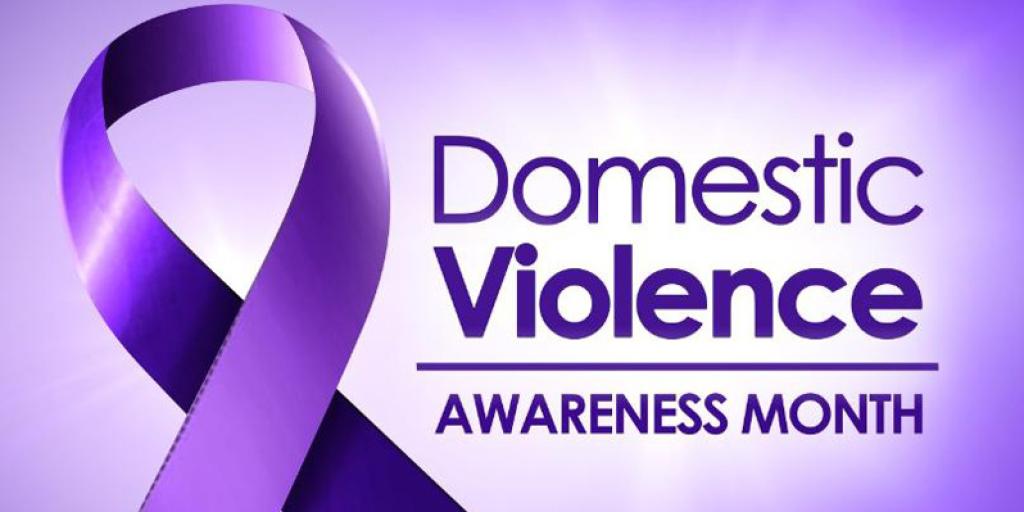Help is available: Escaping domestic violence

If you’re a victim of domestic violence, help is available — even if you see no way out.
That was the overriding theme from a panel of experts who took part in a viewing and discussion of the documentary “Telling Amy’s Story” this week.
The event, hosted by Milwaukee VA Intimate Partner Violence Assistance Program coordinator Andrea Knowlton, rounded out the Milwaukee VA’s observance of Domestic Violence Awareness Month.
“We’re here to support you,” said Marleisa Quiles-Espinoza, supervisor of healing services with Sojourner Family Peace Center, a Milwaukee-based organization that helps those affected by domestic violence.
“We’re here at every stage. We’ll make sure you have a safe way to exit your home and work to get you into our shelter or another shelter,” she said. “We work with survivors to come up with a plan specific to them.”
Sojourner not only helps victims escape abusive situations, it also helps secure restraining orders against abusers and aids victims if an arrest is made and court action begins.
“It can be a confusing, daunting process,” Quiles-Espinoza said. “We walk beside the survivors, making sure they have everything they need. Any day, there is an advocate available.”
That’s important because panelists noted that domestic violence victims often feel powerless and fearful, believing any hint of escape may lead to physical — possibly deadly — consequences for themselves or their children.
Victims are often reluctant to call police, but Capt. Lucretia Turner of the Milwaukee Police Department’s Sensitive Crimes Division said officers are trained to work with victims to be discreet.
“We work with several advocacy services that include safety planning and exit strategies,” she said, noting that officers can help those who do not want to leave the home. “We have to determine what they are looking for to determine what type of assistance we provide.”
And Quiles-Espinoza noted that Sojourner will not involve police if so asked.
“We are confidential advocates. We prioritize choice for survivors and provide options as they make the decisions that are best for their families,” she said. “You may not be ready to leave, or don’t want to leave, but we want to make sure you stay safe.”
Navigating the courts
There’s also help for victims if the situation leads to legal action.
Milwaukee County Assistant District Attorney Sara Sadowski said domestic violence victims are assigned an advocate who explains the court process and provides assistance throughout.
“Sometimes the process is simple. Sometimes it can be arduous and long, and even more trying for the victim,” she said. “The victim advocate walks them through every step of the way.”
“We explain what’s going on and assist with getting them the services they need and notify them of all court dates,” said Tracy Werner, a social worker and victim witness advocate for the Milwaukee County District Attorney’s Office.
Alternatives
Arrest and prosecution aren’t the only outcomes in domestic violence cases, Sadowski said. There are no-contact orders, firearms prohibitions, restraining orders and harassment injunctions, to name a few.
In addition, there are counseling and rehabilitation programs that seek to help abusers change their ways and work to keep a family intact.
“We’ve been working with Sojourner to try and heal the family so they can move forward,” Sadowski said. “We’re attempting some creative solutions, not just punishing the abuser.”
Quiles-Espinoza agreed, saying abusers often grew up in abusive homes.
“Violence is generational; it’s learned behavior,” she said. “We have to break these cycles.”
Services for Veterans
And for Veterans, there is another option: Veterans Treatment Court. It is an intensive alternative to the regular court system that involves working with counseling and treatment programs through the Milwaukee VA.
Veterans facing criminal charges can get charges reduced or dropped if they complete the program.
“We have been doing a number of Veterans Treatment Court referrals,” Werner said. “We bring the survivor into the fold and work closely with the VA if the plan is to seek rehabilitation.”
Panelists noted that domestic violence affects everyone in the community, and it takes many different community members to stop the abuse and help the survivors.
“We are a team, and we lean on the community and each other to keep victims safe,” Werner said.
Need help? Call the National Domestic Violence Hotline at 1-800-799-7233 (SAFE) or TTY 1-800-787-3224.
